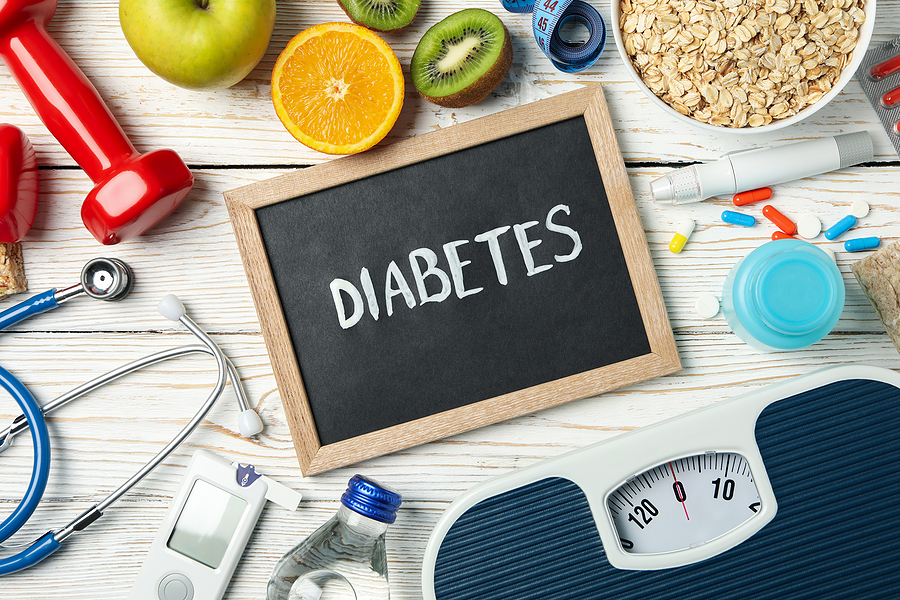Managing Diabetes in the Elderly
Category:

Diabetes affects people of all age groups but the senior population experiences it the most. In this post, we will discuss the symptoms of diabetes in elderly adults, managing diabetes in the elderly, and other pieces of useful information about diabetes and the elderly.
Diabetes in the Elderly: Statistics
Why is diabetes more common in the elderly? The higher prevalence of diabetes in the elderly is due to increasing insulin resistance and impaired pancreatic islet function with aging. Here are some statistics about diabetes, according to the American Diabetes Association:
-
In 2018, 34.2 million American adults had diabetes
-
Of that 34.2 million, 26.8 million were diagnosed while 7.3 million were undiagnosed
-
26.8% of seniors age 65 and older (both diagnosed and undiagnosed) have diabetes, making the total 14.3 million seniors
Next up, can diabetes cause confusion in the elderly? We’ll answer that question and many others when we examine the symptoms of diabetes in seniors.
Download a Free Diabetes Guide
Diabetes in the Elderly: Symptoms
If your loved one experiences any of the following symptoms, you may want to take them to the doctor for diabetes treatment. Here are some symptoms you may experience if you have Type 1 (when the body stops producing insulin) or Type 2 (when the body resists insulin) diabetes:
Type 1
-
Excessive thirst and hunger
-
Fatigue
-
Frequent urination
-
Unexplained weight loss
Type 2
-
Any of the symptoms for Type 1 diabetes
-
Blurred vision
-
Confusion
-
Depression
-
Numbness in the hands or feet
-
Wounds that never heal or are slow to heal
Next, we will review the complications related to diabetes in elderly adults.
Diabetes in the Elderly: Complications
There are several complications when it comes to diabetes but luckily, you can manage them with some self-care strategies. Here are a few you should look out for.
-
Depression
-
Meaning: demands and stresses of diabetes can lead to depression
-
What can I do?: check for signs of depression within three months of diabetes diagnosis; ask your doctor for the best treatment method for depression
-
-
High blood pressure
-
Meaning: risk for strokes and heart attacks; damages circulation, kidneys, and vision
-
What can I do?: check your blood pressure regularly; ask your doctor about how to lower it
-
-
Falls
-
Meaning: diabetes can affect your vision, balance, and feeling in your feet; you may need to take more medications, which can also increase your risk for falls
-
What can I do?: talk to a healthcare provider about what could be causing falls if you’re experiencing them; make some safety changes around your home
-
-
Urinary incontinence
-
Meaning: diabetes can damage nerves in the bladder, resulting in a loss of bladder control
-
What can I do?: consult your healthcare provider
-
-
Memory problems
-
Meaning: diabetes can cause cognitive impairment, or memory and thinking problems
-
What can I do?: consult your healthcare provider to see if there are tests for your cognitive issues
-
-
Nerve pain
-
Meaning: nerve damage, or neuropathy, can limit feelings in your feet and lead to other foot problems such as ulcers
-
What can I do?: blood sugar control may stop neuropathy from getting worse; consult a healthcare provider about pain medications and their side effects
-
-
Taking multiple medications
-
Meaning: as you age, you’ll be taking more medications and they could have harmful interactions with diabetes medications; consult your healthcare provider to ensure
-
What can I do?: keep a list of all medications you take and update your healthcare provider if your body changes
-
Now that we know more about managing complications, let’s take a look at other ways to manage diabetes in elderly adults.
Diabetes in the Elderly: Guidelines
Here are some other tips for managing diabetes:
-
Eat a healthy diet that is low in sugar and saturated fats
-
Exercise at least 30 minutes a day five times a week by performing aerobic exercises such as bicycling, swimming, and walking
-
Check glucose levels to monitor for hypoglycemia
-
Check cholesterol and blood pressure levels to help reduce the risk of heart disease and stroke
-
Take your medication regularly and keep yourself organized by using pillboxes and other organizational tools
-
Get vaccinated for the flu and pneumonia
-
Check your feet every day for cuts or signs of infections and notify your doctor immediately if you see any; keep your feet clean, use lotion, and wear comfortable shoes
-
Take a hearing test because hearing loss is more common among adults with diabetes
-
Visit the dentist because diabetics are more likely to have gum disease and other dental problems
Subscribe
Date: 2020-11-05
Category:


